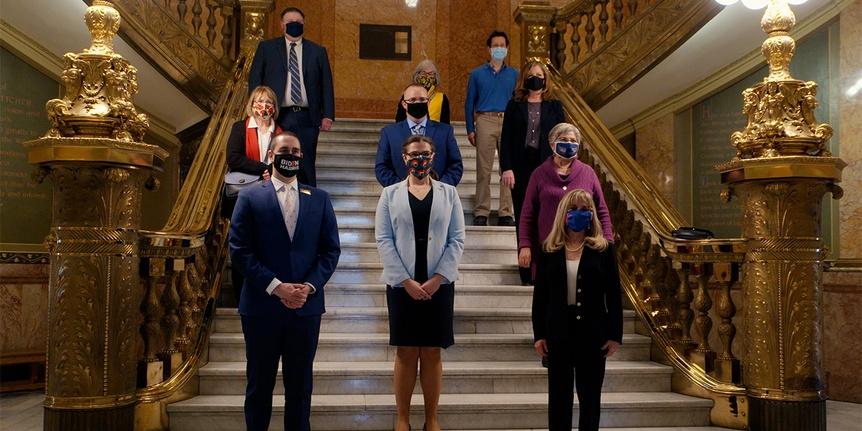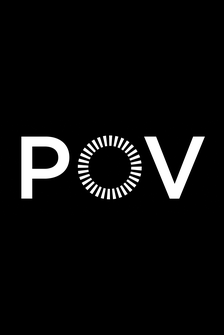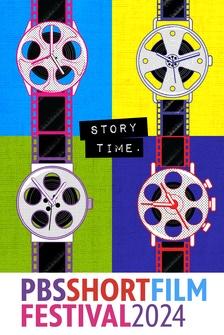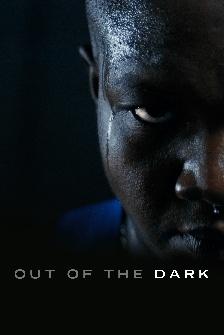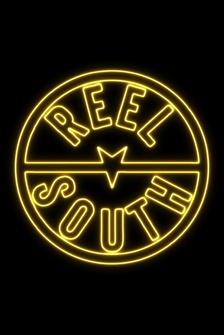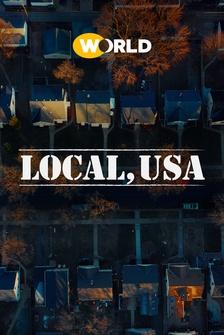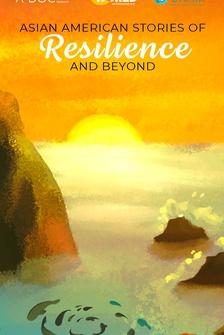(airplane roars) - Previously on "Spice Road," I went back in time to my roots in New York and New Jersey, but now, I'm back home in Los Angeles to try and find out what the future holds.
I wanna understand where we're going from here for South Asians and for my kids.
Ahhh.
Haaha.
- We missed you so much.
- I missed you too.
What has been happening since I left?
- [Both Children] Everything.
- You know what?
I'm actually checking out my next restaurant right here in L.A. Go west, young man.
Maybe that phrase has stuck around because it evokes all the feelings I had when I first moved to L.A. A city of unknown potential.
A city of the future.
Raising kids here has been joyfully surreal in that sense.
But if this place is indeed the jumping off point into tomorrow... What's the evolution of our people in this country?
I have a feeling this is the place where I just might discover it.
Downtown Los Angeles, the concrete beating heart of Los Angeles County.
I'm here today because I heard about a spot that has elevated South Asian street food to a high art.
Everything from the stylishly hip design of their website and food packaging to the unique twists they're putting on age old specialties, gives me a good hint as to where South Asian food and culture might be heading.
I'm meeting up with owner Asim Bharwani at Paratta, a food truck, take out, and catering business that delivers a halal Desi street food experience to foodies all over L.A. Hey, Asim.
- Hey, Rupak.
- I'm excited to be here.
Come on out.
- Thanks for coming out.
Aw man.
What's up man?
Thanks for coming out.
- I love these colors.
Where did you get the inspiration for this?
- We're South Asian street food, inspiration's all truck-out related.
So you got the peacock.
You got the mountain scene in the background.
You got animals, wildlife.
- What's happening on the inside?
- Come on in.
Come on in.
- I'm already enticed by the outside.
- Watch your step.
(upbeat music) Welcome to the truck, Rupak.
- Wow.
All right, so you said it was a family business?
- This is a family business.
- What do you mean?
What is the family mean?
- Yeah, so my wife Zara and I started a few years back, in 2018 or so, because there weren't really any South Asian street food, halal street food options in L.A. My brother-in-law's the head chef.
All the recipes are actually their mom's.
We've just modernized them.
- What is a paratha?
- Rupak, I think the only way to explain to you what a paratha is, is to show you how to make one.
- Really?
- You want to try some out?
- Yeah and I want to learn how to make one.
- I'll teach you, I'll teach you.
- All right, where do you make them, here?
- No, we make them in our test kitchen.
Not too far away from here.
So- - All right.
- You wanna head over?
- Yes.
Parathas are a wheat flour flatbread commonly eaten throughout South Asia.
They're usually cooked on a flat metal pan called a tawa and can either be filled with stuffing like potatoes, paneer, or minced meat, or made plain via a beautiful layering process that makes them delightfully flaky and a perfect compliment to just about any dish.
Oh, wow, so this is it, huh?
- Welcome, welcome in Rupak.
Back at South Asia, everyone does everything by hand.
But they're skilled experts at it.
We're gonna use this dough press to help us a little bit.
Here are all the dough balls.
Pretty much what we're gonna do is we're gonna flatten 'em.
We're gonna do what's called the lachha.
- Lachha.
- So lachha means layering.
The way we're gonna do it is a bit of a pleat setup, and then we're gonna be spiraling it.
And in between the layers we do a little bit of ghee and we do a little bit of flour, all-purpose flour.
So we got our dough ball here.
We're just gonna push it down in the middle.
We're gonna get it nice and stretched out.
- Okay.
- The thinner it is, the more crispy and flakier those layers are gonna get.
We're just gonna throw it down here.
The oil's already there.
We're gonna slap it down, and we're just gonna sprinkle some ghee over the whole thing.
And you get some of the flour, just put a dusting in.
So we're gonna go, one pleat.
- Okay.
- We're gonna fold over again, and we're just gonna continue the process till we get to the bottom.
- He made it look so good.
You just made that look so effortless.
- We're gonna actually introduce a spiral.
- Wow.
- So we got that spiral going here.
Tuck it underneath here.
- Wow.
- And that's your lachha para.
- I'm gonna try that.
- You wanna try?
- All right, let's try it, here we go, put it down.
- Throw a little ghee on there just in case.
- A little ghee.
- Go ahead.
- Slam.
- Oh yeah.
Let me loosen it up for you a little bit.
Try that now.
- Okay.
- I'll help if you need to.
There you go, there you go.
Let's take a peek at it.
- All right.
- Lift it up again.
Cool.
- So... Nice.
- Boom.
Almost, almost, throw some ghee on there first.
- Oh, ghee first.
- Ghee always, ghee's important.
So now you just sprinkle some of the flour.
- Ah, lachha time, right?
- Let's do it.
- The final piece.
Oh, see, you made it look so easy.
I'm doing, like, I'm doing the carpet roll.
- Yeah.
Exactly, the carpet... - How do you do, oh, you know what?
- Fold it over and then fold it back.
- That way and then fold it back.
Fold it over and then fold it back.
I'm not gonna get this last fold.
- There you go, there you go.
And that's pretty good.
Smash it down a little bit, make it thin.
That will help you a little bit.
- My gosh, I totally forgot the spiral.
Oh yeah, that's around your finger, right?
- Yeah, that's around your finger.
- Oh, my gosh, this is so- - Just toss it over.
- Boom.
Boom.
Just tuck this little tail into where your finger is.
- Okay, okay.
- Compare side by side.
- Oh, my God.
- This is pretty good actually, Rupak.
- Thank you, thank you.
- I'm really impressed.
These have been sitting for a few hours just to let it stretch out, a little bit of release.
That temperature also sets.
And then we're just gonna push it down.
- Can we cook this?
- Yeah, we can definitely try.
So I'm just gonna flatten this out and then we're just gonna cook each side until we get to a finish we like.
- Oh, that's good.
-Alright.
- That sounds like heaven.
Look at that.
- So we got a combination of watermelon radish, sweet pepper, some red onion, mint, and cilantro.
So not everyone loves the red onion, but you gotta do red onion.
You gotta do onions with your paratha.
-Alright.
- And now we got our cooked paneer.
We marinate it at the same way we do with everything else.
You like it spicy?
- I do.
- Okay, so we got our hari chutney.
That's gonna make it spicy.
So we're gonna go a little bit like that.
Then we got our meethi chutney.
Or tamarind, sweet tamarind.
Now we're gonna roll it up.
So we just go like that, and we're just gonna roll it like so.
- Beautiful, oh, my gosh.
- Yeah.
That's pretty much it.
- Can we eat, can we party?
Let's chow down.
- Chow down.
- Here we are with this beautiful spread, by the way.
- Thank you.
- I love all of this.
- I appreciate it.
- Can you just quickly explain what everything is here?
- Yeah, yeah, so these are the paratha rolls we just made.
We got our bangin' fritters, our eggplant fritters, aloo fritters, our potato fritters.
And you can't go wrong with our aloo samosas.
These are our vegan samosas.
All of this is vegan and gluten free.
And then, can't forget our mango lassis.
- Let's break into these lassis first.
- Let's do it.
Let's do it.
- Cheers.
- Cheers, brother.
Mm!
- I was tired of water down lassis, so I made sure that we got an extra thick.
- We got lassi nose here.
- I'm American, so I'm born and raised in L.A.
I wasn't like a whitewashed kid, but I wasn't necessarily in touch my roots necessarily.
My wife, she's from Pakistan, so a lot of that came with my wife and her family.
- Were you scared when you launched into this?
- We didn't know anything about food.
You know... We went into it just because we wanted to do it.
- This is Desi street food, right?
This is a very specific thing you're branding here.
- Yeah, yeah, it's really the kind of street food that you have at weddings.
I've only been at Pakistan for weddings specifically.
Everything that we do we try to take from all different regions and try to represent each region.
- We say Desi, right?
That's why Desi covers it all.
- Desi Street food.
- I love it.
Let's unpack this word Desi.
It derives from the word desh, which means land or country.
So Desi roughly translates to of the country.
But which country?
Desi refers to people and things of South Asian origin.
Okay, but where is South Asia exactly?
As the name indicates, it's in the southern part of the Asian continent and includes the countries of India, Pakistan, Bangladesh, Nepal, Sri Lanka, Bhutan, the Maldives, and Afghanistan.
While these countries have distinct political borders, they have many cultural elements in common.
Less than a century ago, some of these countries were even part of the same country.
For me personally, and many South Asians in America, Desi has become a community rallying cry to foster respect and cultural solidarity at a time when some dark forces seek to divide us.
Desi is a word that unites us under our shared banner of heritage.
For Asim who is of proud Pakistani Muslim descent, he's consciously chosen the inclusive term Desi street food to define his cuisine.
Paratta's food adheres to the Muslim guidelines of halal, but appeals to everyone, including me, a vegetarian of Indian Hindu descent.
Mmm!
The lachha, the paneer, it's all coming together.
- Yeah, it's kinda like an explosion of flavors.
- It's an explosion.
What is halal?
- So halal in Arabic means, okay, permissible.
In the food aspect of it, it's food that's okay to eat.
Similar to kosher in Judaism pork and alcohol are forbidden.
So halal is anything that is not that.
Chicken, beef, these kind of things are halal.
It's how the animals are raised.
It's how the animals are killed, the least amount of pain possible.
And all of our items come from halal certified vendors and we're certified ourselves.
- And what does halal mean to you specifically?
- It's really a way of life.
Halal is something that I've been doing since teenager, but you can really taste it in the meat.
And we have a lot of customers who come to us that aren't even Muslim, and they eat halal because the quality of the food is different.
So on the box, we actually have halal written there, and some people look at that, depending on who you are, what your background is, you look at that a little bit skepticism.
But when you eat the food and you realize this is also halal, then you have a connection with that person in a different way that you may not have had.
- You took a big chance.
- Yeah.
- And now you're here, and you're succeeding, and you're doing it well.
- You know, if we were just doing this to make a buck, we'd be doing it completely differently.
It's not cheap to make a box like this.
It's not cheap to make thick lassi or thick chutney.
We're really trying to do it to influence the South Asian cuisine in L.A., or you know, everywhere, really.
Just kinda elevate the South Asian flavors that we've become accustomed to here.
And so people who don't already know about the food or don't really know about the culture, it goes straight to them through their taste buds.
- I'm just proud to be in your presence.
You've taught me some things.
I've learned how to make up paratha.
Keep doing it.
More power to you.
- Always have a lassi with your name on it.
(upbeat music) - Now that I'm home, I gotta show some love to my neighborhood Desi grocery store-cum-restaurant.
Anytime I'm in need of spices, ghee, daal, or craving a convenient and tasty meal, Bhanu in Pasadena is my first stop.
And of course, anything good is made great when shared with a friend.
- Hey.
- So today I've invited my longtime pal, Kiran Deol to chow down with me.
Kiran is a wildly talented stand-up comedian, writer, actor, and director, and I always appreciate her thoughtful and hilarious perspective on things.
This is my hood, and I want to treat you, and I want to go shopping with you, and I wanna do everything with you.
Are you ready?
- I'm ready.
- All right, come on.
I'm gonna grab one of these, so we can do this official style.
- Okay, let's move slowly.
- Let's move slow.
We wanna take our time.
This is a big deal.
- And by move slowly, I mean it's important to spend Rupak's money.
- This for me growing up.
- What was this?
- Mysore Sandal Soap.
- I don't know this soap.
- You've never smelled this?
This is the most...
I'm gonna get one for you.
You just gotta have it.
This is a classic soap.
- This smells like my uncle's house in Delhi.
- Yeah, exactly.
- That is hilarious.
- That's right.
- As I'm like itching my ear.
I'm like, oh, my God.
- I dunno if that's a good thing.
- It's giving me flashbacks.
Karela, do you know karela?
- I know it.
I honestly can't yet eat it.
- You don't like it?
- I feel like your tongue has to die before you can.
- You feel like your tongue has to die?
- It's so bitter.
- You cut them, you take out the seeds that are hard, and then you can just like pan fry it with grilled onions.
I'm explaining this to you the way my mother explains cooking.
Which is just missing so many steps.
Should we get bindis or no bindis?
- Should I get a bindi?
Do you want a bindi?
- I feel like you would look good in a bindi.
- All right, let's do bindis.
- So you're gonna ... and then you put it on, you're gonna put it on when we eat.
- So this is the veggie chaska.
Garlicky notes and it's veggie.
They also do it with chicken, but they did veggie for me.
And this is chole bhature.
And chole is chickpea curry and bhature.
Bhature is really cool because it's leavened bread.
This is deep fried and it's delicious.
- It's very healthy.
- Very healthy, right, yeah.
- Comfort food.
This is comfort food.
- You know, I had to ask this very important question because I've known you since college, right?
We met each other freshman year.
And we were actors and then you made this extraordinary jump into comedy.
What is it like to make people laugh?
- It's so fun.
It's a live performance.
I think probably similar to what you feel doing theater, right?
Like with standup, you're not gonna go on stage one time.
You're gonna go on stage 10,000 times.
You can do great one night, and then do bad the next night, and that's just all part of it.
- How have you felt the audience responds to you sharing your culture on stage?
- What's cool is when you can hear the laugh points of recognition in different places.
So for instance, I have a joke about, (Kiran speaking Punjabi) which is like, you know, Punjabi, which means like, "Oh, if you don't stop, I'm gonna like hit throw you across the room," that's a combo verb talking about my grandparents.
But it's like, when you say that for an Indian crowd, do you know what I mean?
Like before the translation, there's just this recognition, this acknowledgement.
So that was amazing to see how there's really an audience for us.
- Our generation was the first generation to break through and transition and I feel like crossover in a way where it didn't just have to be brown people appreciating what you were saying.
It was also non-brown people who could relate.
- And through the specificity hopefully you're hitting something universal.
When I was growing up, obviously my mom cooked a ton of Indian food, but you really take it for granted.
I was very resistant to learning about cooking when I was a a kid just because I always felt like, ugh, like woman in the kitchen.
I associated cooking with subservience.
It wasn't until I grew up and lived alone and stuff that I really started to see the food as nourishment.
- You're Sikh, or Sikh, depending on how you choose to say it.
Gurdwara is your church, temple.
That's the house of worship for Sikhs is the Gurdwara.
I have been to a Gurdwara once, and they have this amazing tradition called langar.
Where they feed whoever comes, regardless of faith.
What is your experience with langar and with food at the Gurdwara?
- The religion's young and a lot of the philosophy behind it is, um, equality and that langar tradition really speaks to the equality 'cause it's everyone sits on the floor and everyone eats exactly the same thing, and is served exactly the same way.
I love that as a tradition.
It really speaks to like the idea of what serving a community is.
- Yeah.
- What better way to serve people than to feed them.
- Exactly, yeah.
- It's the most basic thing that human beings need.
- Yeah, let's do the gulab jamun.
- All right, now you ordered this.
Try and describe it.
- A fried dough ball.
- Fried dough ball, love it.
- But like a delicious fried dough, because fried dough ball does not sound appetizing.
There's probably a better way to describe this.
(chill music) - Gulab jamun literally translates to rose berry.
Dried milk solids are rolled into balls and deep fried before being dunked in a rose water infused sugar syrup.
It's yummy, and also among the most ubiquitous of American Desi desserts.
Again, my thoughts turn to the future.
A little over a hundred years ago, some folks from Naples, Italy brought pizza to the U.S. and we know what happened next.
Desis are only a few decades into our journey as Americans.
Could gulab jamun one day be casually sold in coffee shops as the donut hole of tomorrow?
We brought the bindis.
We're gonna make this official.
- To celebrate the end of the meal.
- The end of the meal.
- Here we go, buddy.
- Aww.
- Nice.
- (Kiran speaking Punjabi) -Yeah, yeah, there we go.
Yes, that looks good on you.
- Okay.
Matching bindis.
- Matching bindis.
- Yeah, we did it, we did it.
- We did it.
(serene music) Whatever you want to do, you just gotta go for it, okay?
Will you promise me that you will have a dream, figure out what it is, and then don't stop?
Just go for it.
And I support you in whatever your dream is.
You guys are in the driver's seat.
That's what I've learned from this whole journey.
You just gotta go after what you want, whatever's in your heart.
Don't waste a second and be true to what it is you want to do.
You know.
- Mm-hm.
- Anyway, I love you guys, and I'm just happy to be here right now.
I can't help but feel both filled with awe and also incredibly lucky.
The awe is because everyone I've met on this journey so far has pushed through significant challenges in pursuit of a singular vision, a dream, a self-image of their own design.
And lucky, well, because I get to travel this road and I come armed only with curiosity.
I'm living the questions, as one of my favorite poets, Rilke might say.
Speaking of questions, my stomach's growling a bit and now I'm wondering what's next on the menu.
I can't wait to find out.
(serene music) (film projector noise)

